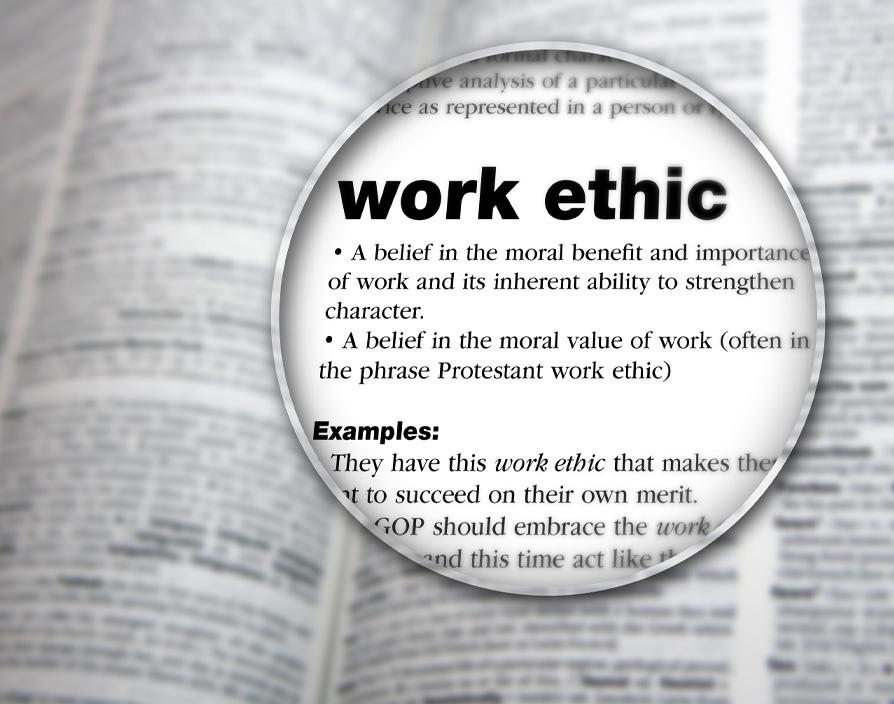During the forty odd years in which I built Pimlico Plumbers into a £50m turnover operation – before selling it in 2021 – I must have heard every excuse under the sun, when employees failed to turn up for work. There was one guy who wanted a week off because he’d burnt his mouth eating a sausage that was ‘too hot’; And then there was a woman who wanted to stay at home because her cat hadn’t drunk its milk.
And I’ll never forget one of my call-centre workers who claimed she was scared of catching bird-flu or the bloke who said he needed to attend his postman’s birthday bash. Back in the day I relied on a tough but fair HR manager to kick this kind of thing into touch.
We never allowed people to take the mickey, although it never stopped a few hard core members from attempting to get one over on us. That said, we had to be careful during the hiring process. In those days my HR people were on the side of their employer, and they saw it as their role to help make the company more efficient and more profitable too.
But we always kept matters above board, and made certain that working conditions remained safe. These days, especially in the public sector, but increasingly in private businesses too, some HR departments appear to be working for the opposition. At times they seem determined to help workers do less work, be less productive, while still getting paid their full salary.
I can’t believe that, nowadays, some of our councils, universities, police forces and fire services, have protocols to deal with the ‘male menopause’. They issue guidance to managers on how to assist middle-aged men cope with everything from a poor night’s sleep to mood swings.
The NHS says ‘male menopause’ is not a clinical condition, but this hasn’t prevented recommendations that firefighters work from home if they have suffered from ‘sleep deprivation’ the night before. And, of course, firefighters can’t work from home.
For those who wish to exploit these regulations, the idea of a ‘male menopause’ is a gift-wrapped excuse for not going to work. It seems there are people who spend their time dreaming up rules that allow staff to bunk off work and still get paid for it. HR departments in the public sector are incorporating regulations that are creating four-day working weeks and ‘mental health days’.
The latter refers to days when employees can be absent from work to focus on taking care of their mental wellbeing. I describe these as ‘duvet days’, when employees take the day off if they don’t feel like getting out of bed. We have reached a point when employees don’t even need to have a wild excuse for not going to work.
It’s now handed to them via gold-plated packages of regulations drawn up by people inside the company. These are the HR people who should be ensuring that employees ‘toe the line’. This would be worrying enough in a thriving economy of full employment and booming business. But, as we all know, we are very far from that.
The UK is not quite the sick man of Europe but we are not far away either. The latest figures show the UK unemployment rate is 4.3%, with 1.46m people over the age of 16 out of work. Unemployment has risen considerably during the past 12 months and is approximately 90,000 above the level it was pre-pandemic.
The number of ‘economically inactive’ individuals, between the ages of 16 and 64, is pushing nine million. ‘Economically inactive’ means either out of work, or not seeking employment. This is depressing news for everyone. It is a clear sign that we need motivated and dedicated employers – as well as devoted employees – to boost our productivity and output.
But, in its place, we have highly paid HR professionals aiding and abetting lazy employees to do less work. I learned the hard way that if you give some people an inch, they will take a mile. Mondays and Fridays are the worst days for employee absences. That is why it is so important for companies to employ a strong HR team.
By the time I sold Pimlico Plumbers, we were an organisation with 500 employees. I personally took charge of hiring my own HR team, to ensure they knew what was expected of them.
Our workplace policies were clear, and could be summarised as follows: We don’t have an issue with anyone working from home, but they won’t get paid for it; If anyone is sick for more than two days, they will need to have a doctor’s note. And, on the other side of the coin, bosses should never take advantage of their workers either.
When I was chief executive of Pimlico Plumbers, I prided myself on providing a modern, forward-thinking workplace. We had a 24-hour gym, a roof terrace for smokers, a subsidised canteen, and plenty of events, ranging from summer barbecues to a black-tie Christmas party. This all helped to keep people motivated and fostered a sense of community and team spirit.
In return, I asked for hard work and commitment. But it seems that these fundamental attributes have become outdated and unfashionable. The maxim that you need to work hard to boost your career chances seems to have been overtaken by a strategy of taking advantage of loopholes, to do less graft but receive a higher salary.
This wasn’t the work-ethic that enabled me to go from a 15-year-old kid with no qualifications, to becoming a successful entrepreneur. In short, if people continue to duck and dive, instead of putting in an honest day’s work, this will spell economic disaster for companies, as well as the country as a whole.
Share via:









































